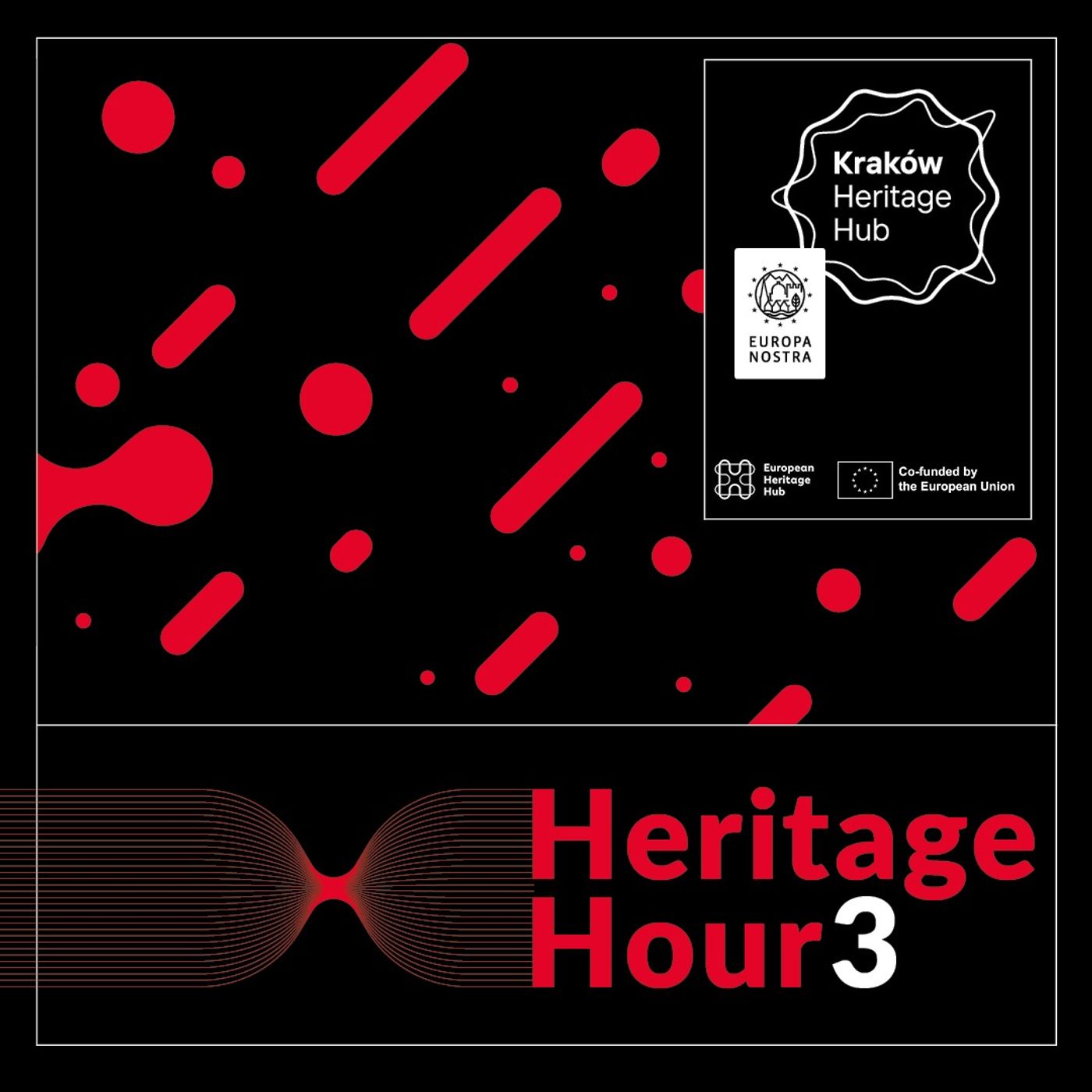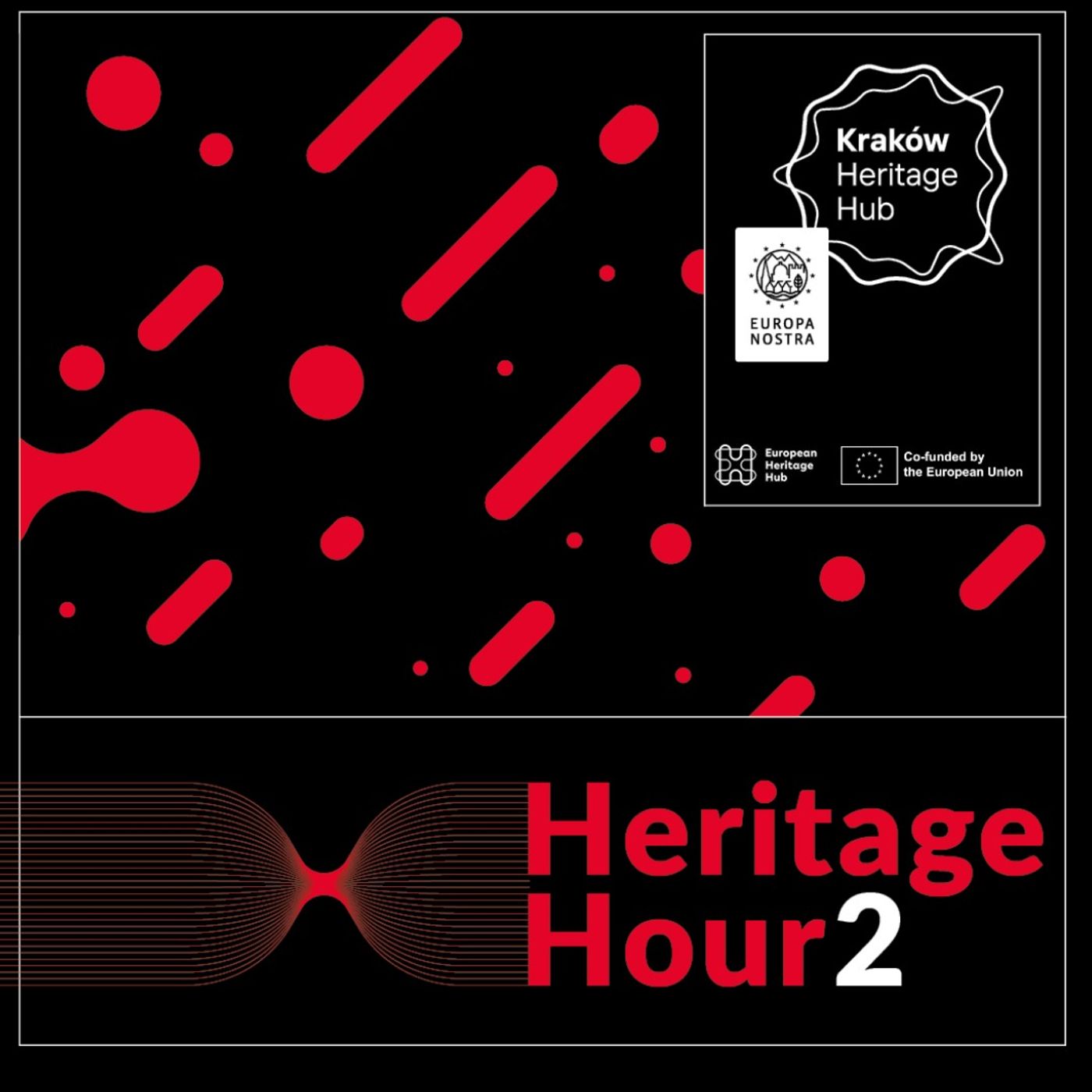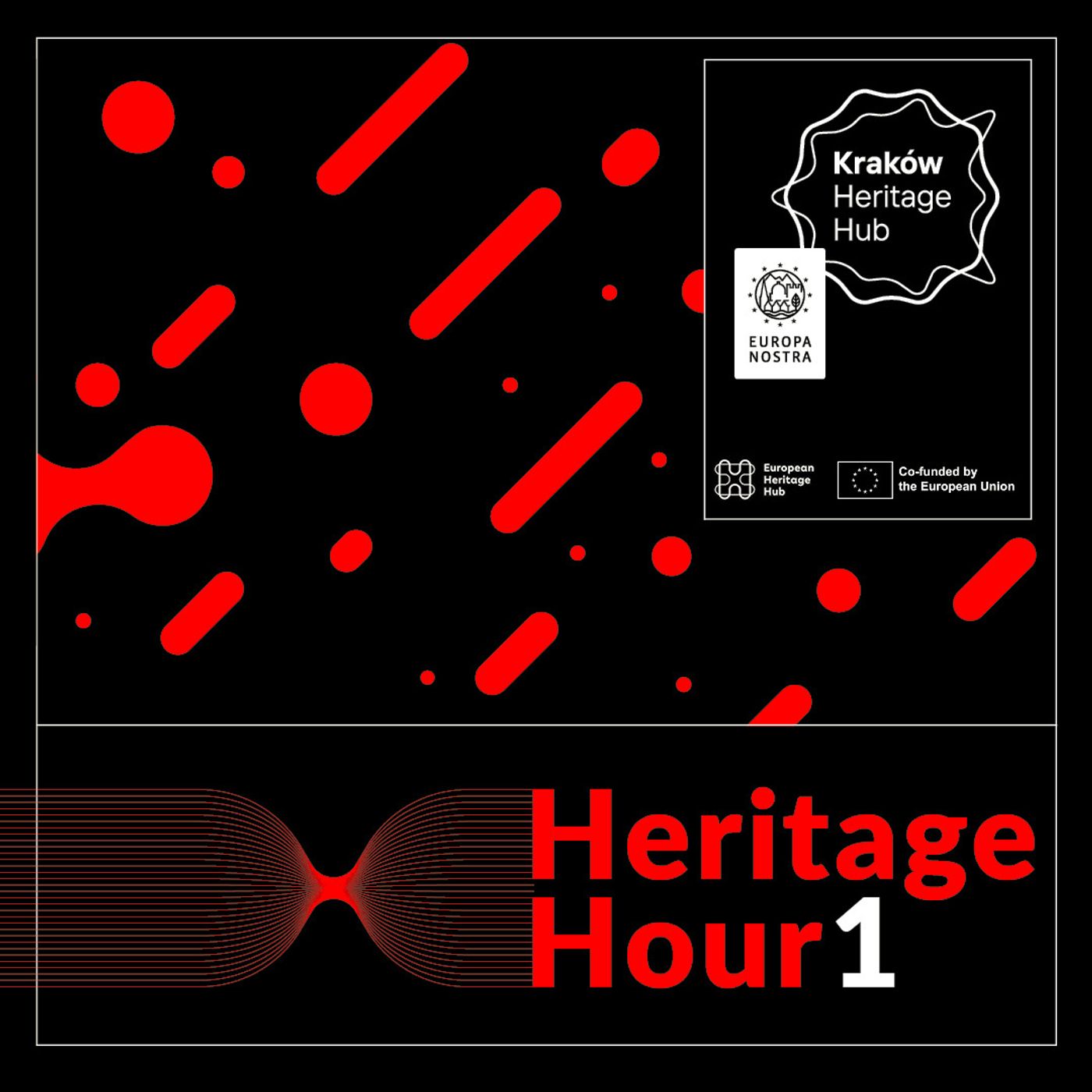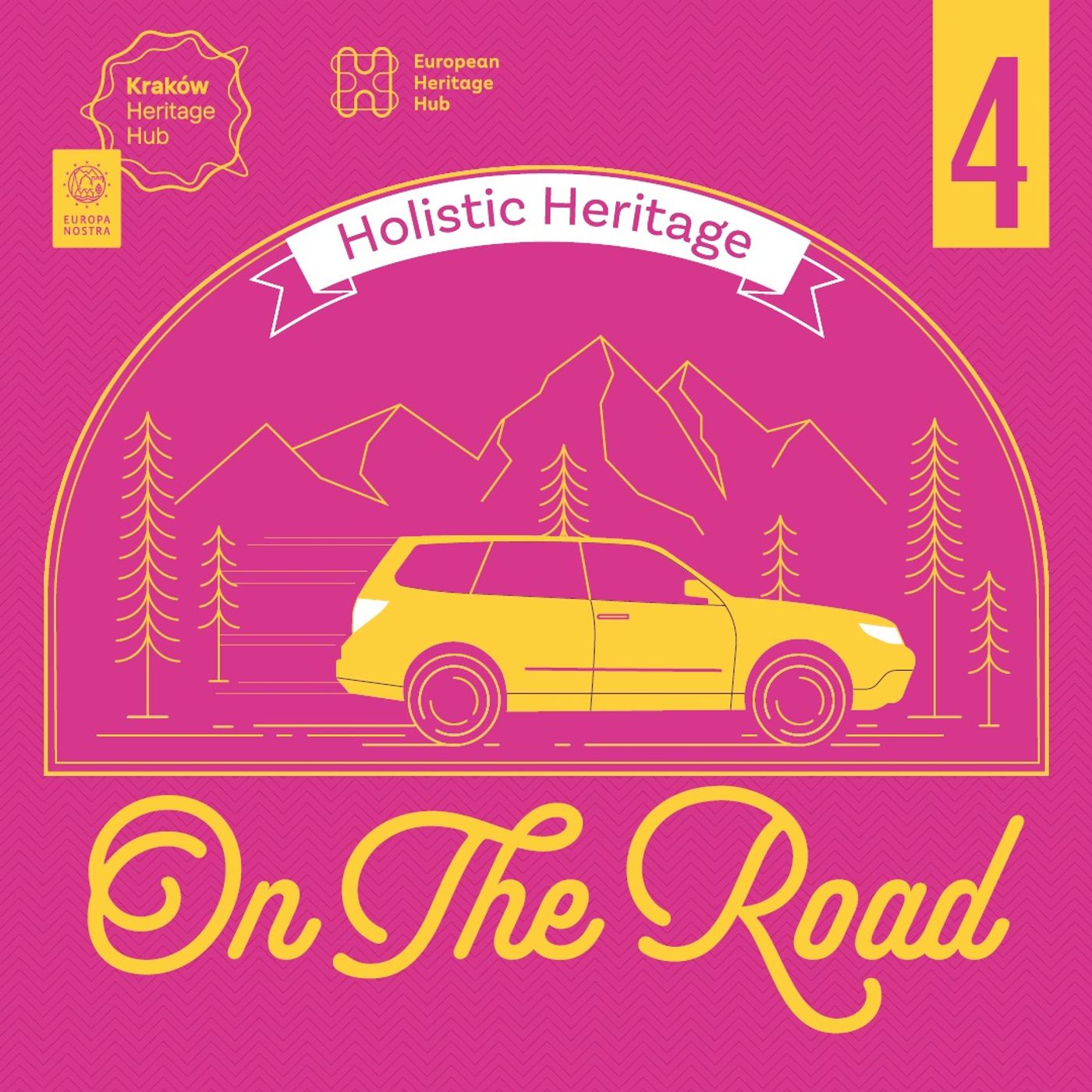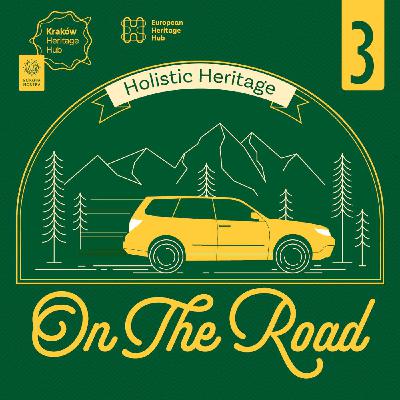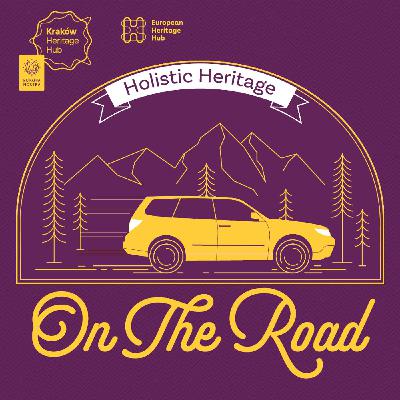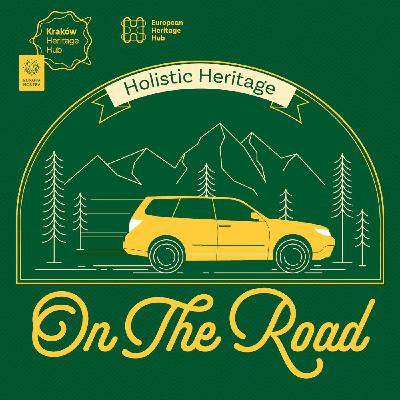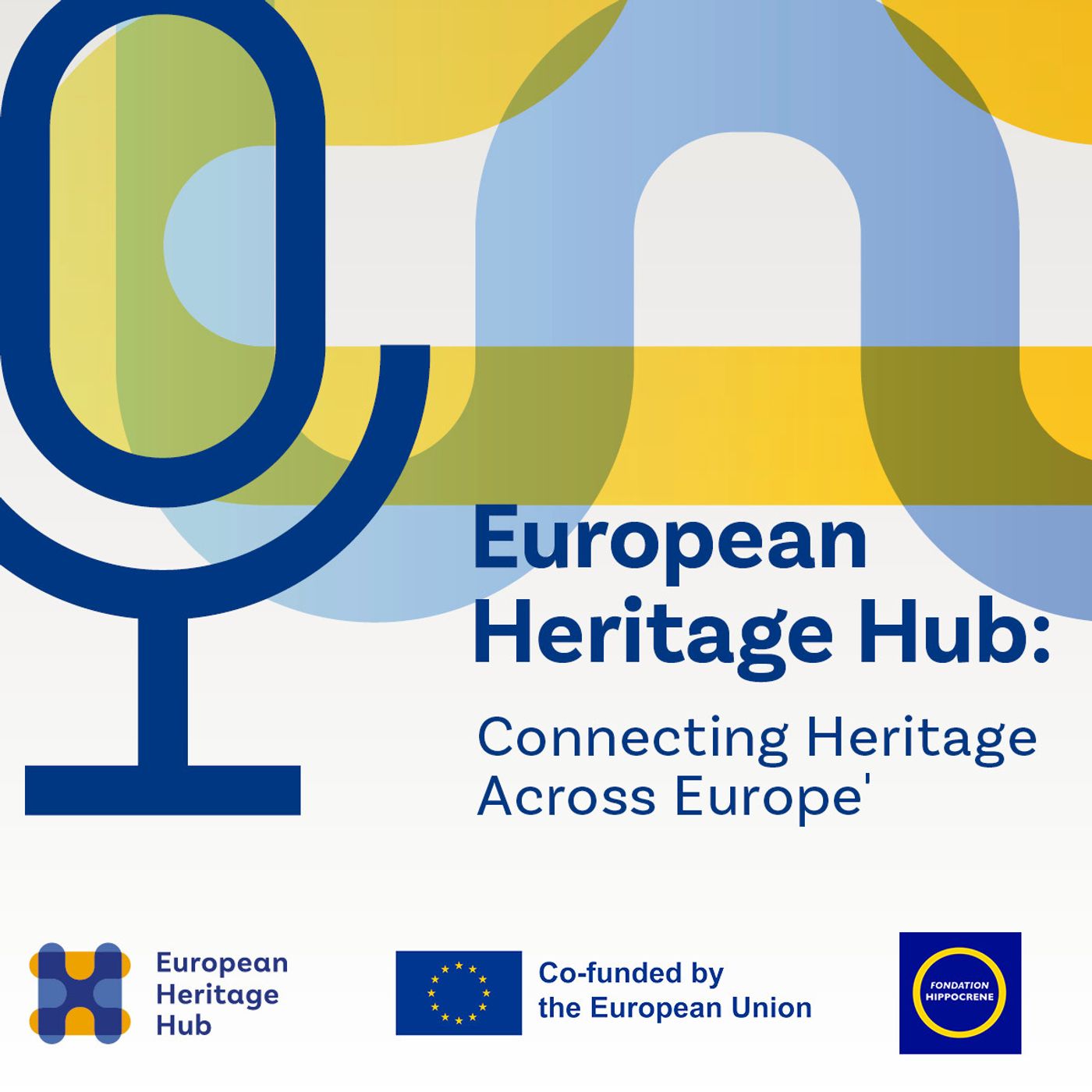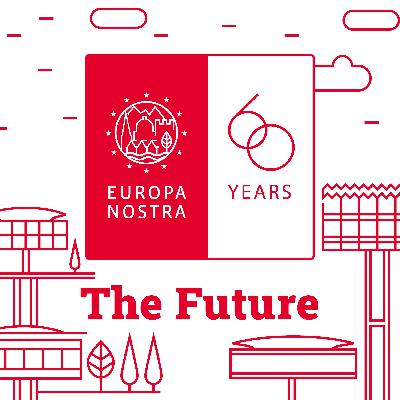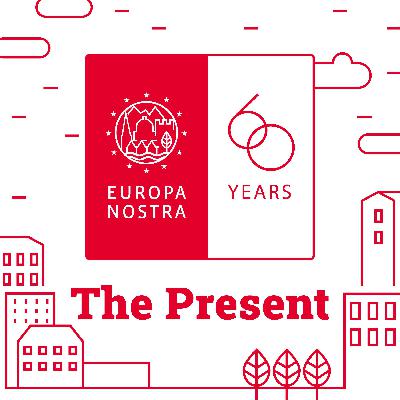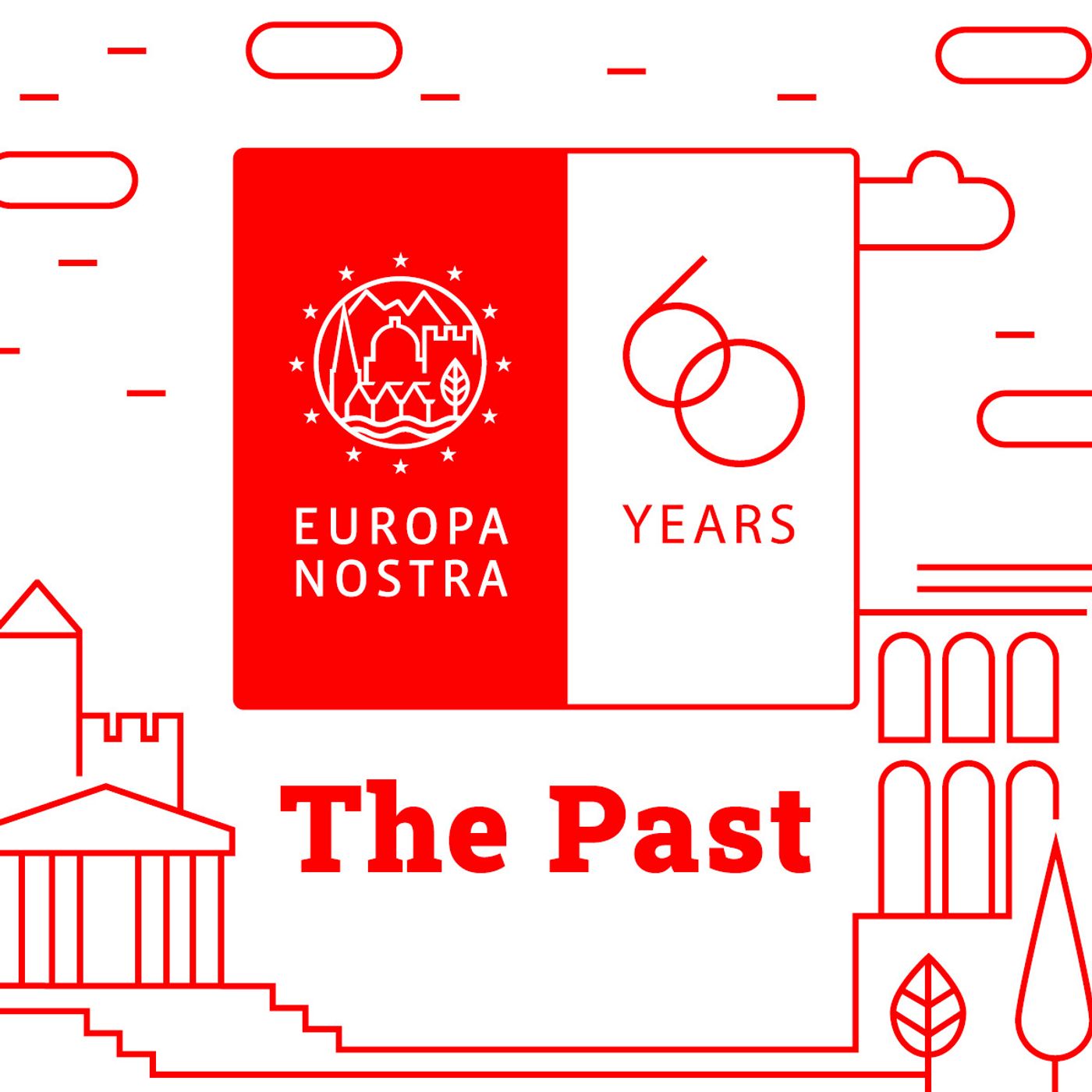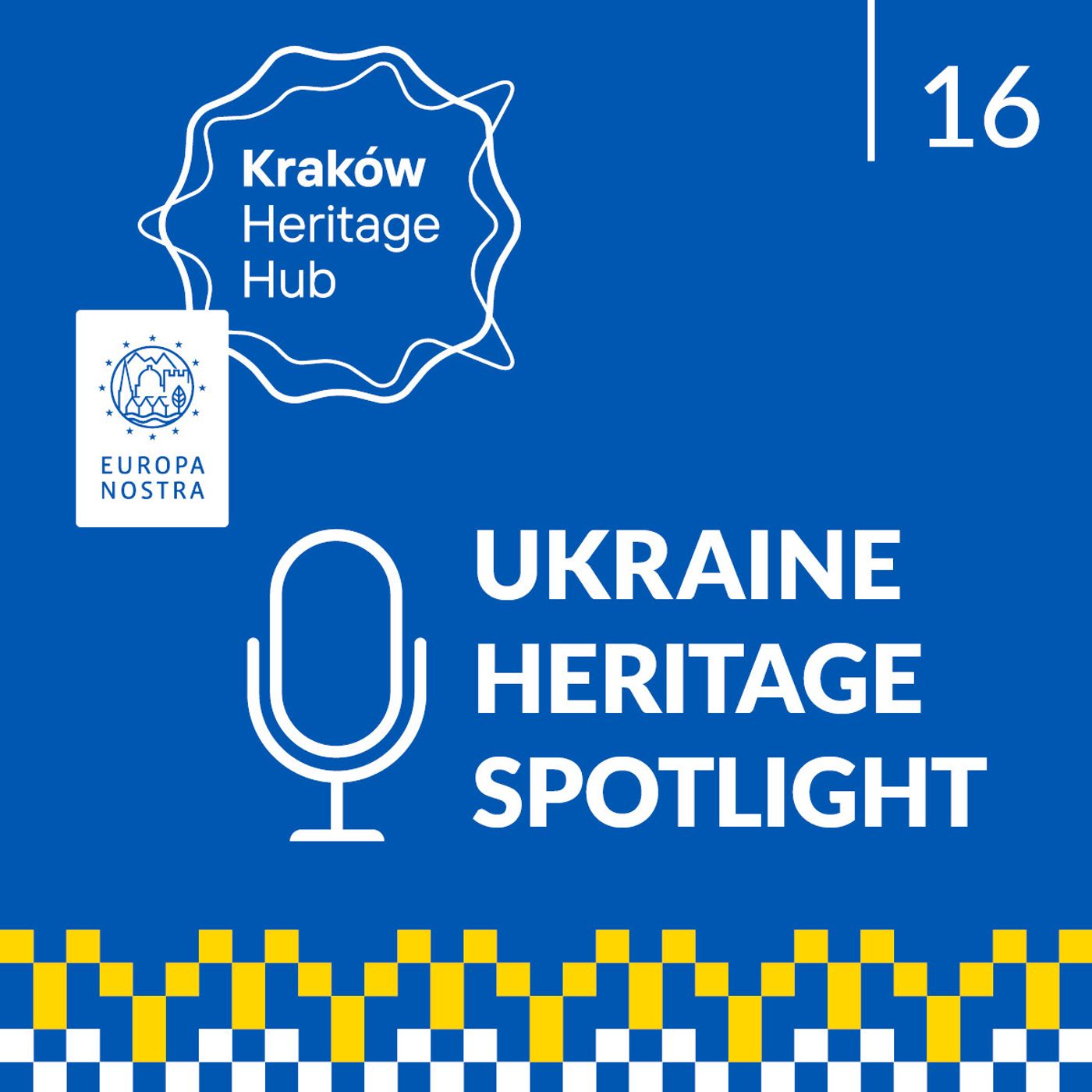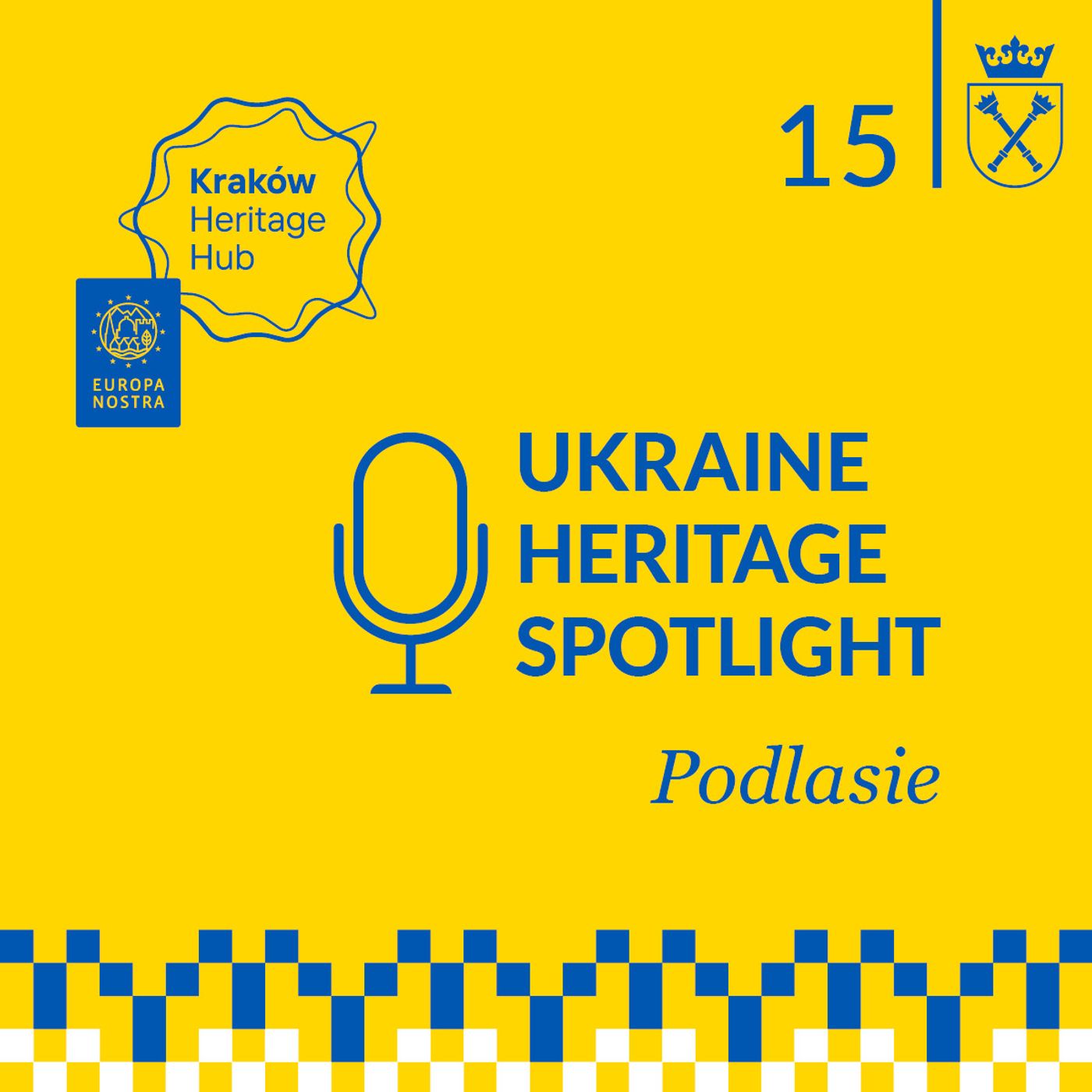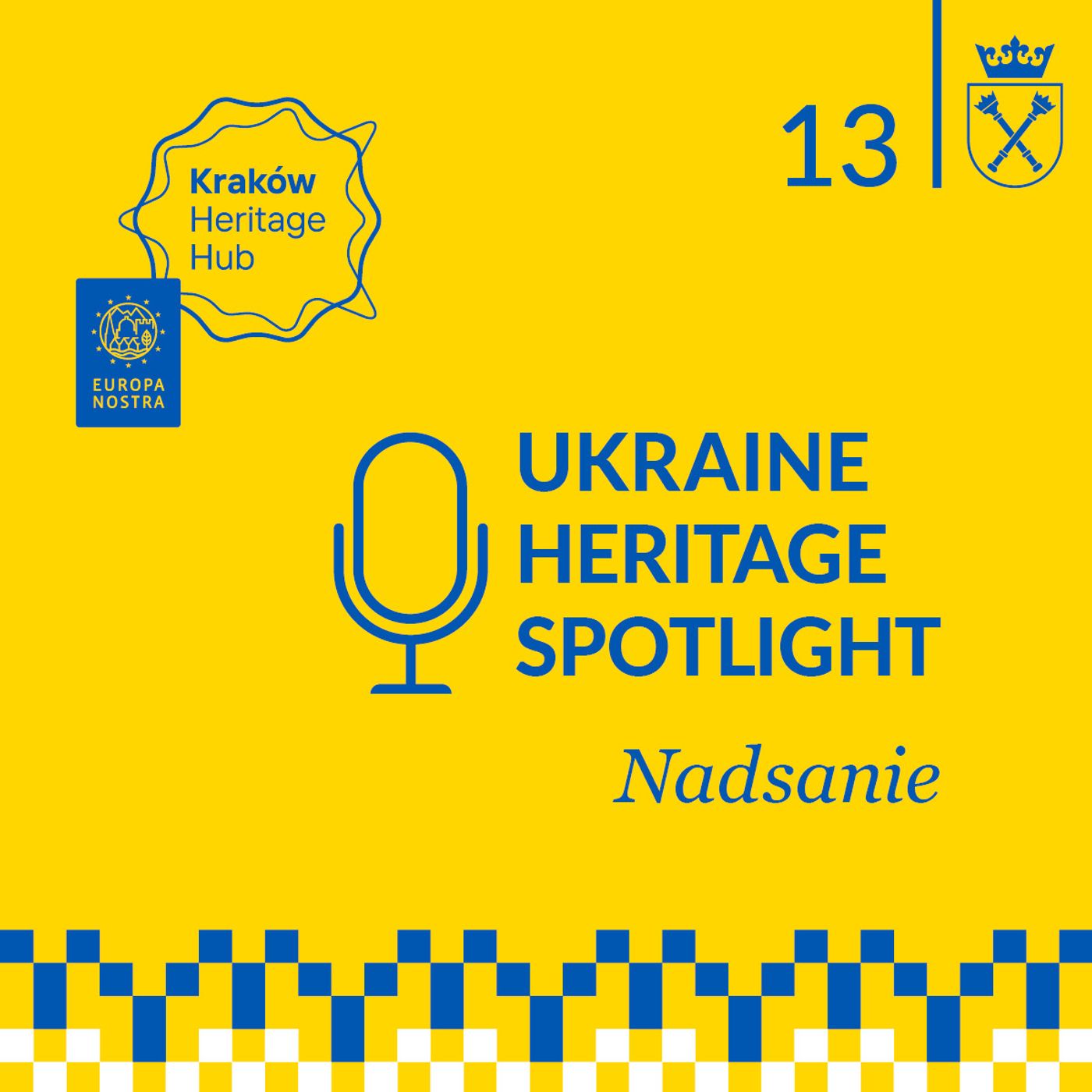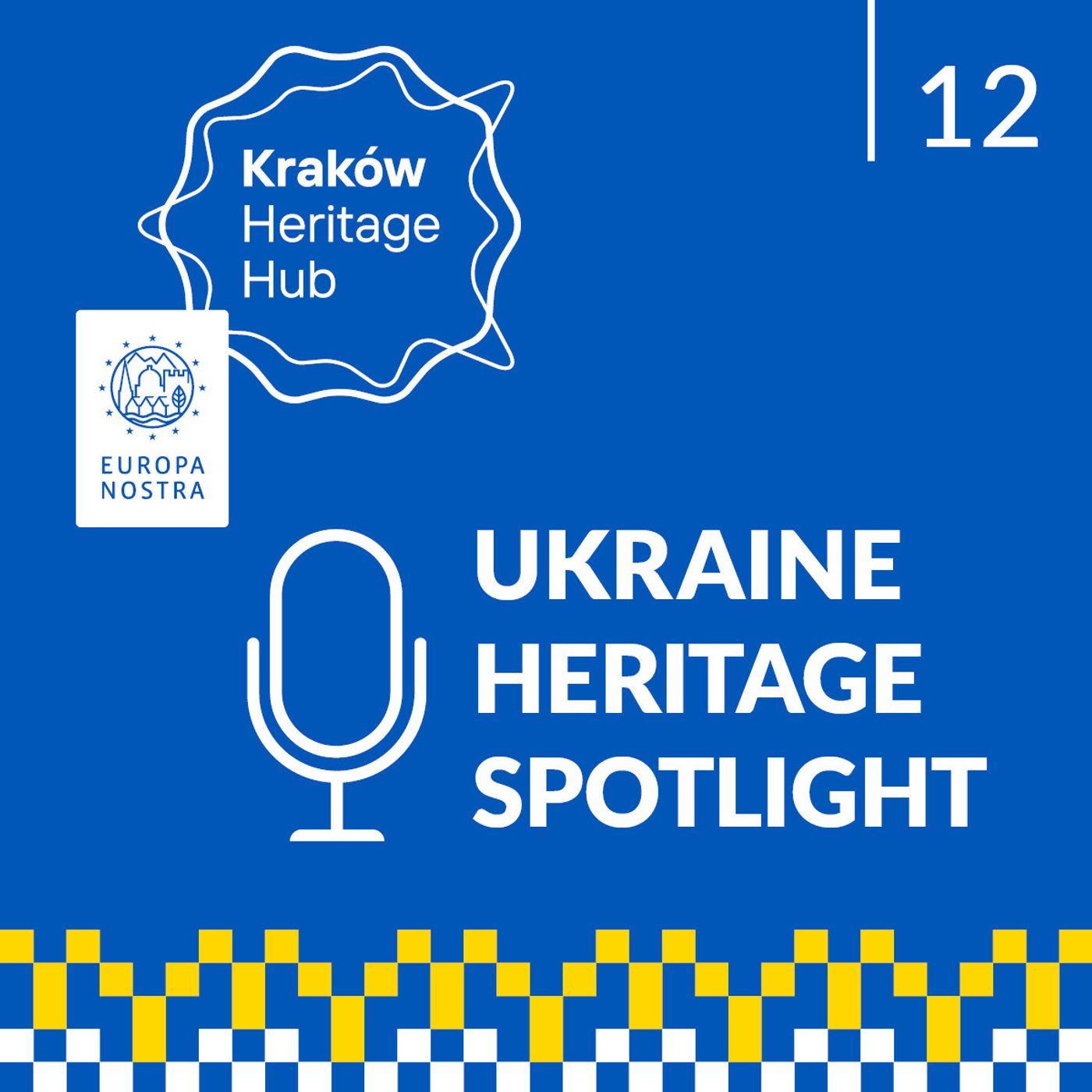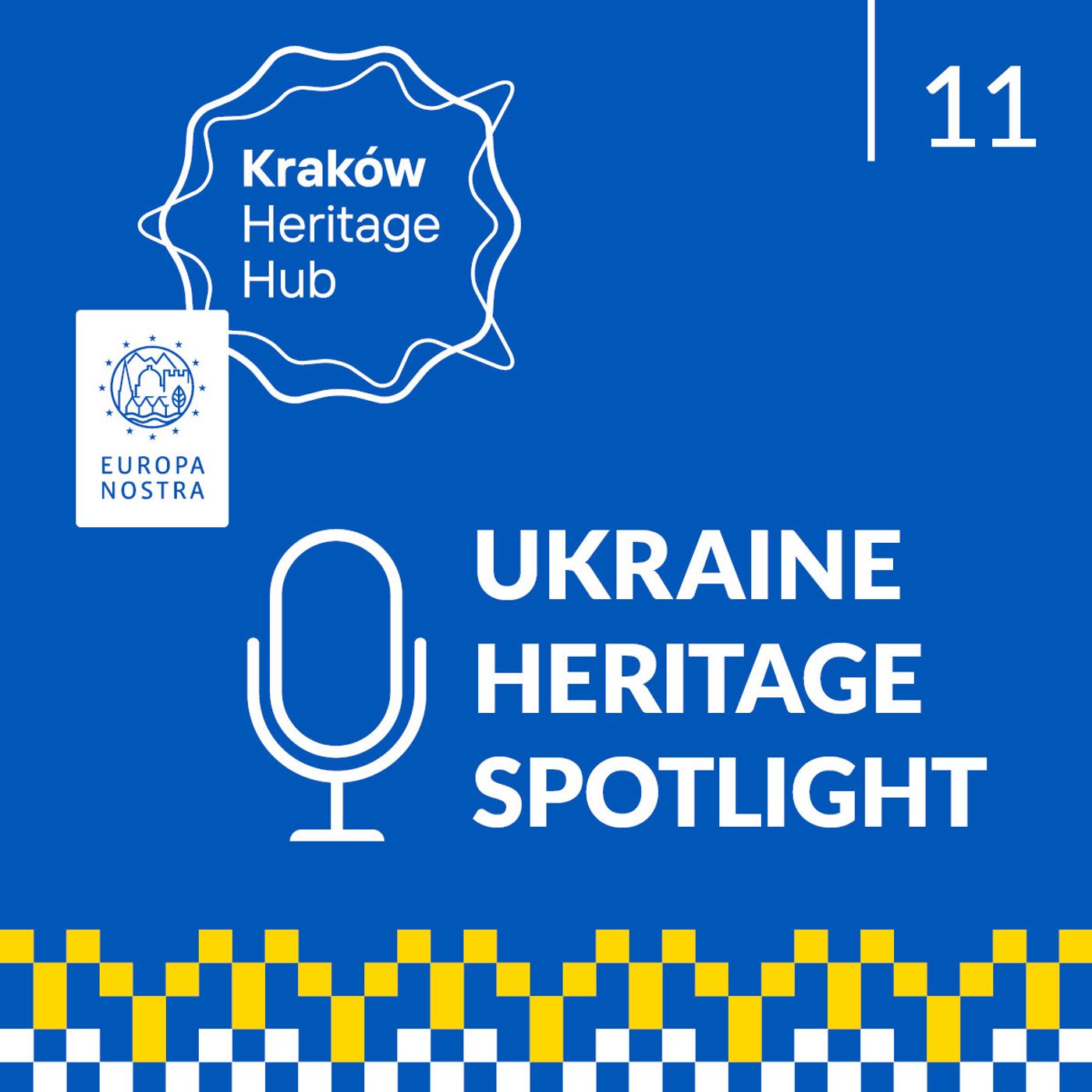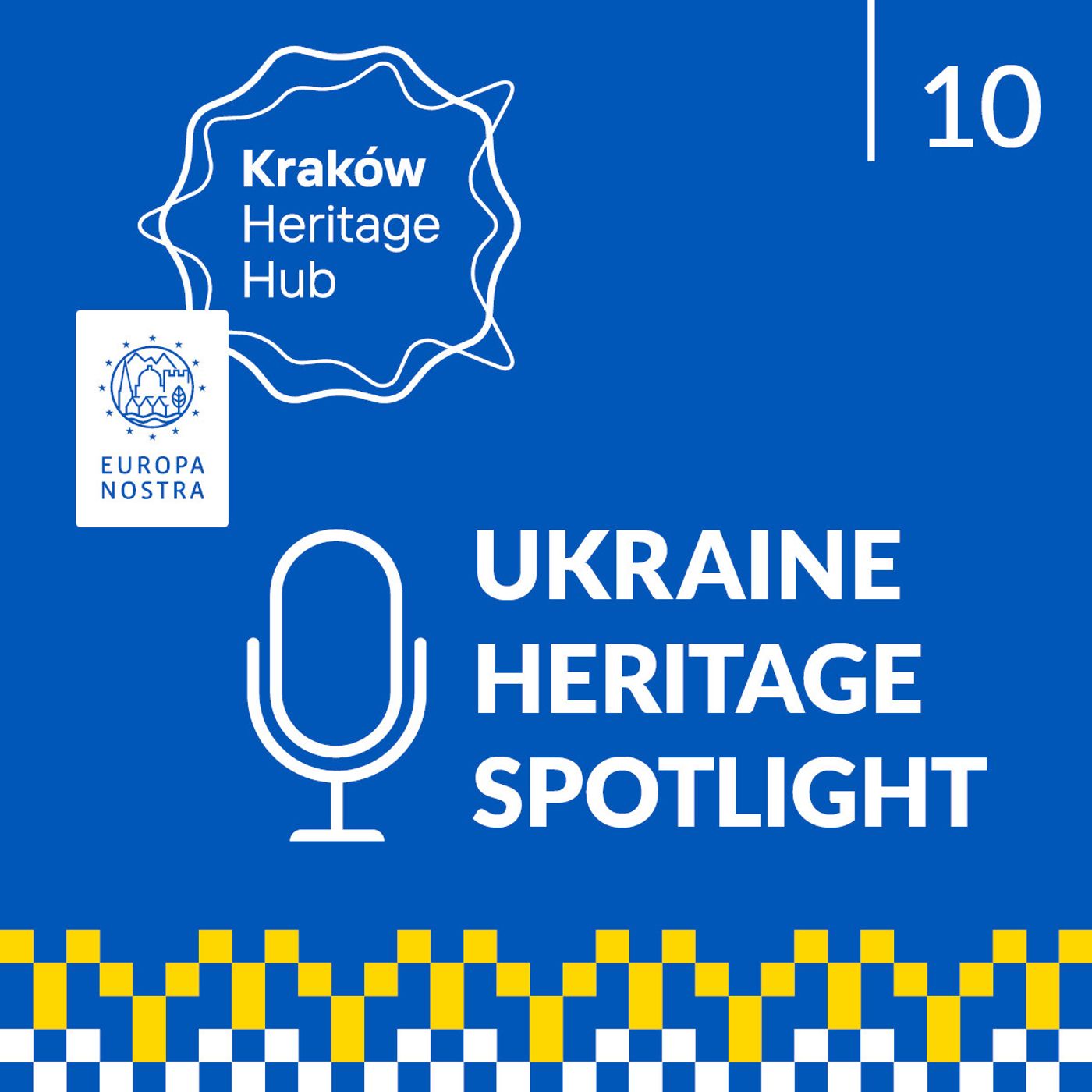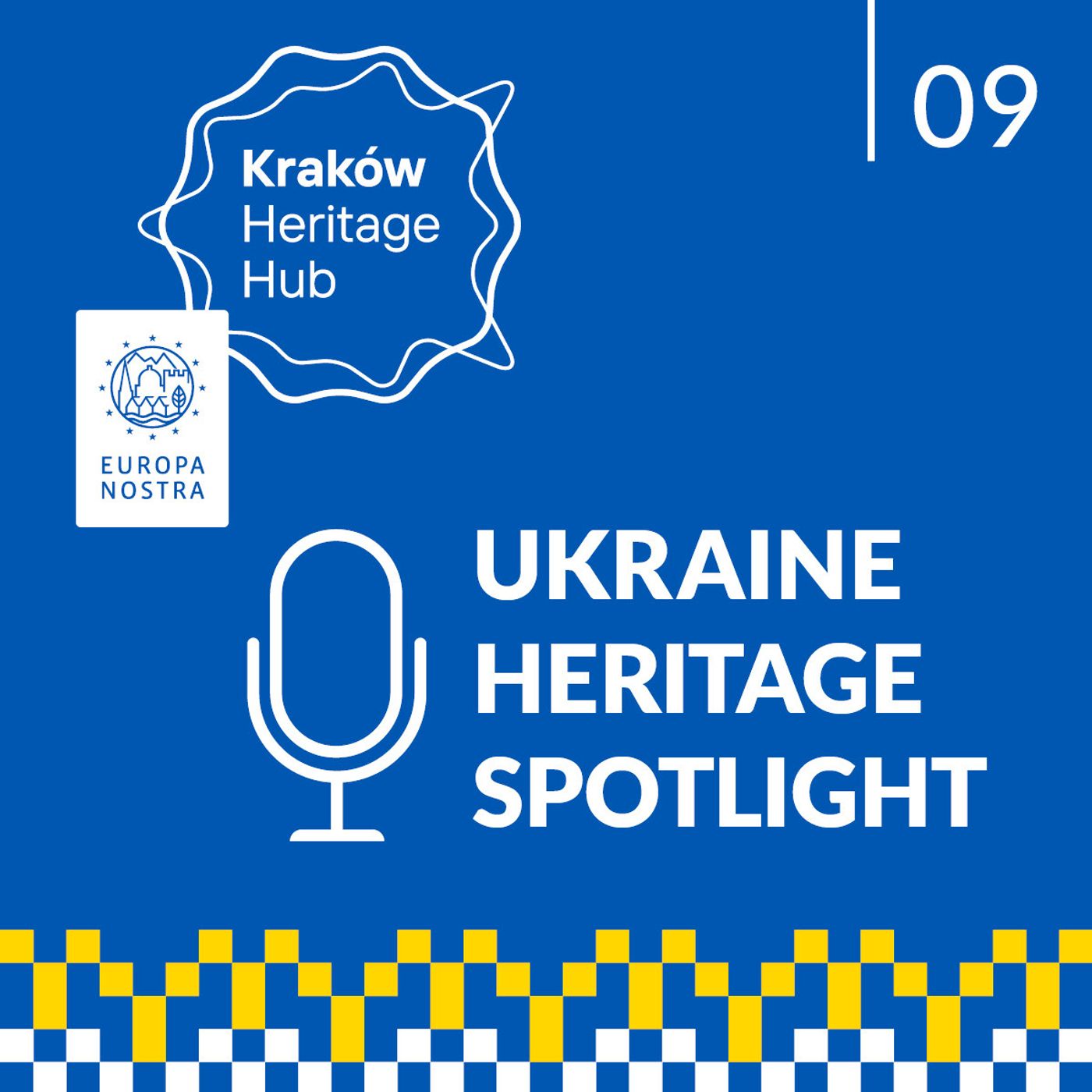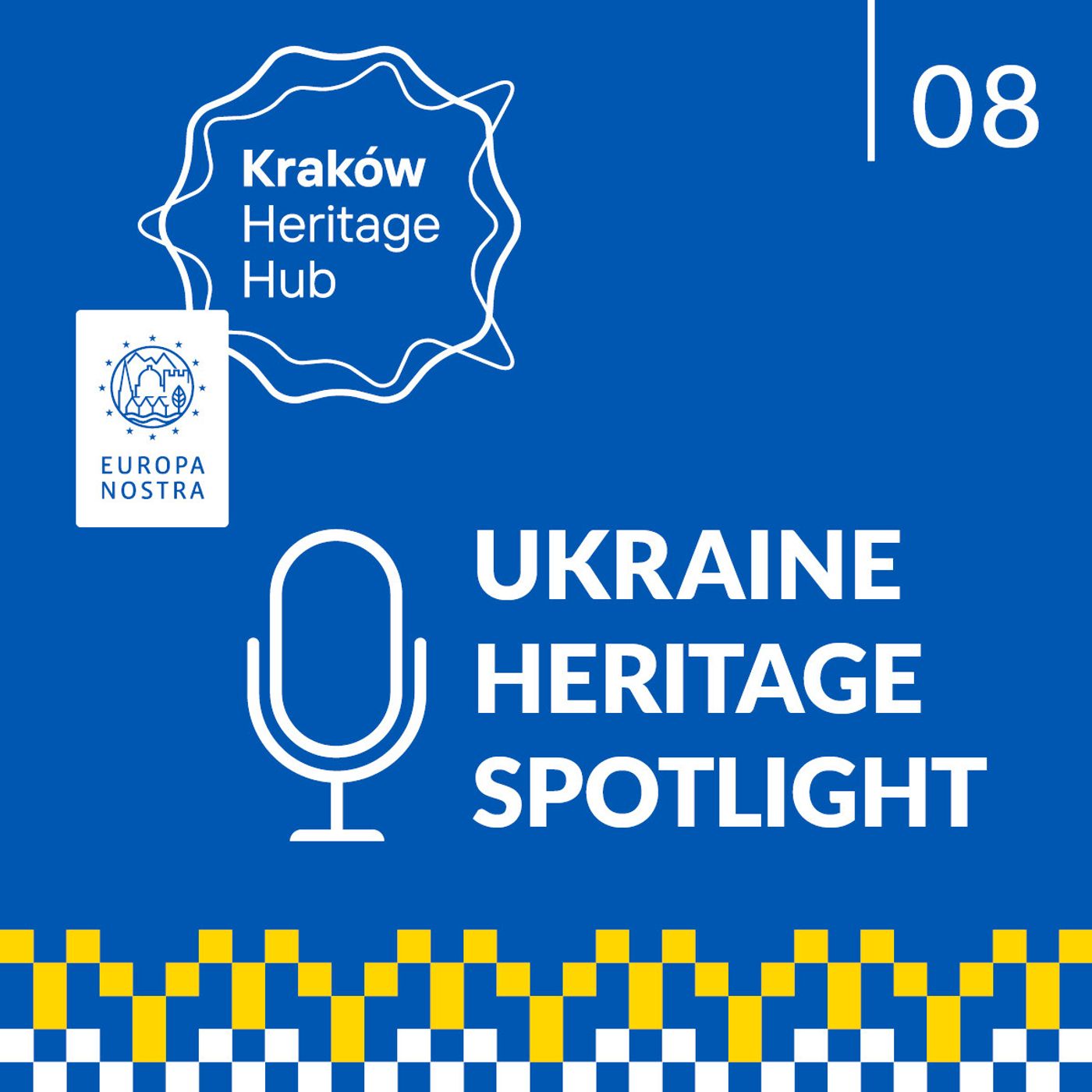Discover Holistic Heritage
Holistic Heritage

Holistic Heritage
Author: Towarzystwo Miłośników Historii i Zabytków Krakowa, European Heritage Hub
Subscribed: 1Played: 17Subscribe
Share
© 2023-2025 Towarzystwo Miłośników Historii i Zabytków Krakowa
Description
Holistic Heritage brings conversations, opinions and thoughts on heritage from Central and Eastern Europe. Join Katarzyna Jagodzińska and John Beauchamp as they interview heritage leaders and discover the most inspiring projects from across the region. Brought to you by the Europa Nostra Heritage Hub in Kraków.
54 Episodes
Reverse
For this episode of Heritage Hour we are in Nowa Huta, an industrial city which was built as a workers’ neighbourhood in the socialist-realist style in the late 1940s, acting as a proletarian counterweight to the seemingly snobbish and intellectual city of Kraków.Over seven decades later, and Nowa Huta’s sprawling steelworks have all but disappeared, the district is one of the greenest in Kraków, and new challenges await. While the city is on the Polish historical monuments register (designated as a pomnik historii), it now has a chance to promote itself further by applying to UNESCO. But is such a heritage label what Nowa Huta really wants, or needs?John Beauchamp and Katarzyna Jagodzińska meet with two experts from Nowa Huta to discuss its very phenomenon. Katarzyna Kobylarczyk, a local journalist, author and social archivist, as well as Jarosław Klaś, Director of the Norwid Cultural Centre in Nowa Huta.
Over the past couple of years, the research team at the Europa Nostra Heritage Hub in Kraków has been busy on creating a report on the non-governmental heritage sector in Central and Eastern Europe.“Mapping of the Central and Eastern European Non-Governmental Heritage Sector: Report” was published in June 2025 and penned by researchers at the Europa Nostra Heritage Hub in Kraków in collaboration with the Centrum Cyfrowe Foundation in Warsaw.The report is the first of its kind, giving a comprehensive overview of the non-governmental heritage sector across ten countries in the region. The document – containing over 200 pages – highlights the situation of the sector as well as the challenges it faces.As many as 35,000 heritage NGOs are operational across the CEE region, the report finds, although working conditions leave a lot to be desired: the research reveals that problems regarding cashflow, operational stability and burnout are the three hardest challenges the sector faces.The report shows findings from ten countries: Belarus, Czechia, Estonia, Hungary, Latvia, Lithuania, Poland, Romania, Slovakia, and Ukraine.Three of the report’s authors: Dr Katarzyna Jagodzińska (Head of the Europa Nostra Heritage Hub in Kraków), Dr Joanna Sanetra-Szeliga (Deputy Head of the Europa Nostra Heritage Hub in Kraków), and Maja Drabczyk (Chair of the Centrum Cyfrowe Foundation in Warsaw), join podcast host John Beauchamp to discuss the report’s findings.You can download a copy of the report from the Kraków Heritage Hub’s website by going here. This podcast was produced in the frame of and as an outcome of the European Heritage Hub pilot project co-funded by the European Union.
In this inaugural episode of Heritage Hour, we speak to leading experts on the preservation of Jewish heritage in Poland.We hear about the synagogue in Orla, in eastern Poland, and its submission to the 7 Most Endangered Programme run by Europa Nostra. What is special about the synagogue in Orla and why was it important to include it in the 7ME programme? Are there any other synagogues eligible? What is the scale of Jewish heritage sites that still need securing, protecting and restoring? What is the public awareness of Jewish heritage today? The Europa Nostra Heritage Hub in Kraków’s Katarzyna Jagodzińska and John Beauchamp are in the POLIN Museum of the History of Polish Jews to meet:Jolanta Gumula – Deputy Director for Programming, POLIN Museum of the History of Polish JewsPiotr Ostrowski – Publisher, Virtual Shtetl online project, POLIN Museum of the History of Polish JewsPiotr Puchta – CEO, Foundation for Preservation of Jewish Heritage in PolandKrzysztof Bielawski – Foundation for Preservation of Jewish Heritage in PolandAleksandra Janus – President, Zapomniane FoundationHeritage Hour is the latest podcast series to come from the Europa Nostra Heritage Hub in Kraków.Each episode takes an important topic concerning heritage in our part of Europe and brings it to the table to discuss with a range of experts.As the title suggests, the podcast is an hour-long discussion, which allows us to get to the heart of each matter, as well as giving a voice to the many heritage practitioners we will be meeting on the way! This podcast was produced in the frame of and as an outcome of the European Heritage Hub pilot project co-funded by the European Union.
For this episode of On The Road, we are in the Bulgarian Valley of the Roses and the town of Kazanlak to find out more about rose production.John Beauchamp and Katarzyna Jagodzińska visit Kazanlak, where they meet Denitsa Barekova from the Rose Museum in Kazanlak, who explains the history of roses in the area and the traditional methods used to make coveted rose oil and other rose-related products.Apart from the history and traditions of rose oil making, we also learn about the industry and as it stands now thanks to a meeting with Aleks at Lema, one of Kazanlak’s rose oil distilleries on the outskirts of town.
Over recent decades, a lot of industry in the region of Silesia has shut down. While some plants and factories have been demolished, others have stood the test of time and are still standing, albeit having been adapted to completely new functions, such as museums, art galleries, restaurants, cafes, hotels, and as headquarters of various companies.Usually these buildings were in need of change, being adapted to serve current needs and possibilities, yet leaving some authenticity behind. Perhaps only in this way these buildings could have been saved… Join us as we discover Silesia and the potential for adaptation and reuse of the region’s industrial heritage.In this episode we visit:Queen Louise Adit and Guido Mine at the Coal Mining Museum in Zabrze, Poland (European Heritage Award / Europa Nostra Grand Prix award winner in 2019)Dolní Oblast Vítkovice complex in Ostrava, CzechiaPLATO Contemporary Art Gallery in Ostrava, CzechiaLandek Park Mining Museum in Ostrava, CzechiaZinc Rolling Mill in Świętochłowice, Poland (owned and managed by the Foundation for the Protection of Silesian Industrial Heritage, represented by Dr Piotr Gerber, Heritage Champion awarded in 2024) This podcast was produced in the frame of and as an outcome of the European Heritage Hub pilot project co-funded by the European Union.
Following our visit to the Tășuleasa Social and hiking a part of the Via Transilvanica (you can hear more in our episode on the Via Transilvanica here), we decide to carry on our journey through Romania and Bulgaria by taking in a few heritage sites. Our first destination is the village of Viscri, an old Saxon village which is home to a fortified church, one of seven Villages with Fortified Churches in Transylvania inscribed onto UNESCO’s World Heritage list in 1999. Viscri also caught the attention of the British Royal Family, when Prince Charles – now King Charles III – bought a house there in 2006 and has since become an advocate for the region’s rich cultural heritage. After stopping off south of Bucharest for lunch we head over the Friendship Bridge into Bulgaria.Veliko Tarnovo, one of the oldest settlements in Bulgaria, has a history spanning some five millennia. It was the capital of the Second Bulgarian Empire and is now one of the country’s cultural centres. We visit the scenic hillside town and the old fortress of Tsarevets and then head for the Tuesday market in Pavlikeni – where we try some Bulgarian street food – and then hit the road towards the Black Sea coast.Up in the hills not too far away from Varna we visit another UNESCO heritage site. The Madara Rider or Madara Horseman is a large early medieval rock relief in the mountains near Shumen depicting a majestic rider. What is amazing about the site, however, is the fact that it is larger than life and is still visible after well over 1000 years.After going offline at Camping Kosmos in Durankulak, we head up towards the Danube Delta and stay in the port town of Tulcea before heading up over the Carpathians and towards the Bucovina region and the Humor Monastery, one of eight ‘Churches of Moldavia’ inscribed in to the UNESCO World Heritage list.We end the podcast at the National Museum of the Village in Bucharest. But we are already planning our next road trip! This podcast was produced in the frame of and as an outcome of the European Heritage Hub pilot project co-funded by the European Union.
Physical damage to Ukraine’s cultural heritage is very real. Official figures from UNESCO dated 10 April 2024 reveal verified damage to 351 sites since 24 February 2022, including religious sites, museums and monuments, as well as other heritage sites.For the inaugural episode, I’m in Lviv, Ukraine’s western gateway, where we meet leading cultural figures to learn what is being done to preserve – and save – Ukrainian cultural heritage in light of the continuing conflict with Russia.Lilia Onyshchenko-Shvets is advisor to the Mayor of Lviv on heritage protection. We meet her in her office near the old Arsenal in downtown Lviv. “We were absolutely not prepared for what happened on 22 February,” she says of the outbreak of war. “We simply didn’t think it could happen” she says of the full-scale Russian invasion.In the podcast, we also hear how Vasyl Rozhko from the НеМо: Ukrainian Heritage Monitoring Lab is systematically assessing damage done to Ukrainian heritage, including information which may be used for criminal proceedings against the Russian Federation.Dr. Iryna Sklokina is a Research Fellow at the Center for Urban History of East Central Europe in Lviv. In 2023, her project – Un/Archiving Post/Industry – won an Europa Nostra heritage award in the category “Citizen Engagement and Awareness Raising”. She explains how the war has raised awareness among Ukrainians of their cultural heritage.In Lviv’s opulent Potocki Palace I meet with Taras Voznyak, director of the Lviv National Art Gallery. He explains the situation of museum collections across the country and what is being done to protect them.We also visit the Ukrainian Catholic University. It’s here where leading Ukrainian historian, Professor Yaroslav Hrytsak explains what’s at stake for the Ukrainian people. This podcast was produced in the frame of and as an outcome of the European Heritage Hub pilot project co-funded by the European Union.
The European Heritage Hub is one of the largest cultural heritage-driven projects across Europe to support the green, social and digital transformation of our society. Launched in May 2023 by a consortium of 20 partners led by Europa Nostra, and co-funded by the European Union, this pilot project brings together a large array of heritage stakeholders and initiatives, responding to the need for a more structured cooperation and coordination for heritage across Europe and beyond.In this episode we travel to Venice, where the Hub held its first public Forum titled ‘Reimagining the Anthropocene: Putting Culture and Heritage at the Heart of Climate Action'. Against the captivating backdrop of water splashing against the banks and the gentle hum of vaporettos, we hear first-hand from the Project Leader, several Hub partners, and some of the keynote speakers of the inaugural Forum.Listen on to learn more about the mission of the Hub, upcoming activities and priorities, as well as the intrinsic connection between climate justice and cultural heritage.This podcast was produced in collaboration with the Europa Nostra Heritage Hub in Kraków and Free Range Productions. The production and promotion of the podcast received the financial support of the European Union and La Fondation Hippocrène, a partner of Europa Nostra. This podcast was produced in the frame of and as an outcome of the European Heritage Hub pilot project co-funded by the European Union.This episode features the following voices: • Sneška Quaedvlieg-Mihailović, Project Leader of the European Heritage Hub and Secretary General of Europa Nostra;• Carla Toffolo, Programme Manager of the European Heritage Hub;• Andrew Potts, Heritage and Climate Action Advisor at Europa Nostra;• Catherine Magnant, Head of the Cultural Policy Unit in the European Commission;• Lorena Aldana, Head of External Relations and Advocacy at the Europeana Foundation;• Bastien Varoutsikos, Director of Strategic Development at the ALIPH Foundation;• HRH Princess Dana Firas of Jordan, President of ICOMOS-Jordan and Petra National Trust, and Climate Heritage Network Special Envoy; • Adam Klups, European Heritage Youth Ambassador; and• Marshall Marcus, Executive and Artistic Director of the European Union Youth Orchestra.
60 years ago, on 29 November 1963, Europa Nostra was founded at the Council of Europe premises in Paris. Starting out with 11 founding members, it has become the largest civil society network dedicated to cultural heritage in Europe. Today, it gives voice to over 300 organisations from across Europe and beyond.Europa Nostra is constantly exploring new fields and topics that need special attention in the area of heritage and its interconnectedness with social matters, climate, technology or economy. In this podcast we explore current plans and ambitions of the organisation within a large network of European partnerships and external collaborations, keeping in mind new potentials or challenges of tomorrow which might open up new paths of exploration.In this episode you will hear about the future of Europa Nostra. This podcast series was recorded during the European Cultural Heritage Summit held in Venice in September 2023, and produced in collaboration with the Europa Nostra Heritage Hub in Kraków and Free Range Productions.This episode features the following voices: Sneška Quaedvlieg-Mihailović, Jimmy Jamar, Natalia Moussienko, Andrew Potts, and Senada Demirović Habibija. This podcast was produced in the frame of and as an outcome of the European Heritage Hub pilot project co-funded by the European Union.
60 years ago, on 29 November 1963, Europa Nostra was founded at the Council of Europe premises in Paris. Starting out with 11 founding members, it has become the largest civil society network dedicated to cultural heritage in Europe. Today, it gives voice to over 300 organisations from across Europe and beyond. This remarkable milestone would not have been achieved without the unwavering support of countless committed individuals and valuable partners. In this podcast, we reflect on Europa Nostra's history and the individuals who have shaped it over time. We take a moment to explore current activities and the influential figures involved. Moreover, we peer into the future, outlining priorities for both Europa Nostra and the broader heritage sector in the coming years.In this episode you will hear about the present of Europa Nostra. This podcast series was recorded during the European Cultural Heritage Summit held in Venice in September 2023, and produced in collaboration with the Europa Nostra Heritage Hub in Kraków and Free Range Productions.This episode features the following voices: Sneška Quaedvlieg-Mihailović, Hermann Parzinger, Elena Bianchi, Ana Szekely, Antigoni Michael and Katarzyna Jagodzińska. This podcast was produced in the frame of and as an outcome of the European Heritage Hub pilot project co-funded by the European Union. This podcast was produced in the frame of and as an outcome of the European Heritage Hub pilot project co-funded by the European Union.This podcast was produced in the frame of and as an outcome of the European Heritage Hub pilot project co-funded by the European Union.
60 years ago, on 29 November 1963, Europa Nostra was founded at the Council of Europe premises in Paris. Starting out with 11 founding members, it has become the largest civil society network dedicated to cultural heritage in Europe. Today, it gives voice to over 300 organisations from across Europe and beyond. This remarkable milestone would not have been achieved without the unwavering support of countless committed individuals and valuable partners. In this podcast, we reflect on Europa Nostra's history and the individuals who have shaped it over time. We take a moment to explore current activities and the influential figures involved. Moreover, we peer into the future, outlining priorities for both Europa Nostra and the broader heritage sector in the coming years.In this episode you will hear about the past of Europa Nostra. This podcast series was recorded during the European Cultural Heritage Summit held in Venice in September 2023, and produced in collaboration with the Europa Nostra Heritage Hub in Kraków and Free Range Productions.This episode features the following voices: Sneška Quaedvlieg-Mihailović, Guy Clausse, Androulla Vassiliou, Luisella Pavan-Woolfe, Jacek Purchla and Lydia Carras. This podcast was produced in the frame of and as an outcome of the European Heritage Hub pilot project co-funded by the European Union.
Oleksandra Kovalchuk is the deputy director of the Fine Arts Museum in Odesa as well as the co-founder of the Museum For Change NGO, which actively seeks and supports cultural institutions in Ukraine in preserving their collections and assisting in ongoing operations.Head of the Kraków Heritage Hub, Katarzyna Jagodzińska met with Oleksandra Kovalchuk at the International Cultural Centre in September 2024 to hear the latest on how Ukraine’s cultural heritage is being fought for against the odds. This podcast was produced in the frame of and as an outcome of the European Heritage Hub pilot project co-funded by the European Union.
In our search for the cultural heritage of Ukrainians in Poland we have arrived in Podlasie – a region encompassing the Polish-Belarusian borderland, with the Narew river meandering through its centre and the World Heritage listed Białowieża forest straddling the border.For decades, Ukrainian inhabitants of this land have been struggling with a harmful stereotype that this region – as a national and cultural borderland – is a contact point between Poles and Belarusians. This has seemingly condemned the ethnically Ukrainian population of this area to oblivion. Yet a great many Orthodox inhabitants of the villages and towns between the Bug and the Narew rivers belong to the Ukrainian ethnic area in terms of language, material culture and folklore.The cultural identity of Ukrainians who are still living in the area is strong, but they indicate that it’s fading. People are moving out to other regions or abroad, children don’t use the language of their grandparents any longer in their daily communication, and in the meantime whatever traditional architecture remains is falling apart.However, all is not lost, and it would be skepticism to say that it was too late to keep this heritage alive. The Kraków Heritage Hub’s John Beauchamp together with Katarzyna Jagodzińska are at a local privately-owned open-air museum, Skansen Koźliki, where they meet Jerzy Misiejuk to find the tangible essence of Ukrainian Podlasie.Also in the episode, we meet a number of local activists and researchers connected to the Podlasie Scientific Institute in Bielsk Podlaski. We hear from journalist Jerzy Gawryluk, the editor-in-chief of local Ukrainian-language newspaper Nad Buhom i Narwoju, local poet Eugenia Gawryluk, teachers Elżbieta Tomczuk from Bielsk Podlaski and Irena Wiszenko from Czeremcha, the home of the Hiłoczka Ukrainian youth song ensemble. We also meet Maria Ryżyk, head of the Association of Ukrainians in Podlasie and a member of the local council in Bielsk Podlaski.This podcast was produced as part of the “Intangible Cultural Heritage of Ukrainians in Poland: Mapping and Dissemination” project realised by the Faculty of International and Political Studies at the Jagiellonian University with the Europa Nostra Heritage Hub in Kraków. The project is led by Dr Olga Kich-Masłej from the Department of Polish-Ukrainian Studies.The funding was provided by the Strategic Programme Excellence Initiative at the Jagiellonian University.
We are in the Beskid Niski mountain range in southern Poland which is home of the Lemkos, an ethnic group of Carpathian highlanders. They have their own language, which may be classified as a dialect of Rusyn, akin to Ukrainian, and have been here in the Polish Carpathians for generations.The latest Polish census data from 2021 reveals that a fraction over 13,600 people are Lemko or identify as having a mixed Lemko identity. What is interesting, though, is that the majority of Lemkos don’t live here in Lemkovyna. A closer look at the statistics reveals that more Lemkos live in Dolny Śląsk in the south-west, than in Małopolska, which is home to the Beskid Niski.In the episode, the Hub’s John Beauchamp and Katarzyna Jagodzińska travel across green hills and virgin landscapes to visit people who struggle against the odds to save their heritage, build recognition and empower a new generation to continue the development of the customs, traditions, skills and the language.We meet Mychajło Markowicz, founder of the Nowycia Foundation in Nowica which aims to promote Ukrainian culture in the Beskid Niski. The wooden building where foundation is located - known as a chyża - in the past used to be a place for meetings and the exchange of information, a latter-day Whatsapp or social media platform. Nowadays, as Markowicz himself says, the Nowica Foundation wants to fill this gap and be a sort of Lemko internet.Then we have a late breakfast at the agrotourism farm ‘Swystowy Sad’ in Ropki run by Grażyna Betlej-Furman, who tells us about Lemko cuisine, local produce and the way of life in Lemkovyna.In the village of Łosie we speak to Wasyl Szlanta, whose professional life revolved around traditional tar making and who was one of the founders of the Łemkowska Watra festival.In Sękowa we visit the Majsternia Karpat workshop and inn run by Anna Czuchta and Piotr Jasion. We learn about changing Lemko language, local cuisine and herbs.Finally we have a meeting with Julia Doszna, a famous Lemko singer for whom Lemko language and traditional singing is an integral part of her identity.All the people we met during several days of our journey finally come together at Łemkowska Watra (or Lemkivska Vatra), the biggest Lemko culture festival, which is a compulsory event in the yearly calendar, not just for Lemkos, but for the wide community of Ukrainians.This podcast was produced as part of the “Intangible Cultural Heritage of Ukrainians in Poland: Mapping and Dissemination” project realised by the Faculty of International and Political Studies at the Jagiellonian University with the Europa Nostra Heritage Hub in Kraków. The project is led by Dr Olga Kich-Masłej from the Department of Polish-Ukrainian Studies.The funding was provided by the Strategic Programme Excellence Initiative at the Jagiellonian University.
We are in Przemyśl which plays host to the Narodniy Dim – the National House – which is run by the Association of Ukrainians in Poland. A number of families which were deported from this area in 1947 as part of Operation Vistula have since returned and are cultivating their regional traditions, language and music.We take a look at some of these stories as part of a project which aims to draw attention to Ukrainian cultural heritage and its rekindling after years of neglect.In the episode, the Hub’s John Beauchamp and Katarzyna Jagodzińska are in Przemyśl to meet a number of Ukrainian activists,including:Igor Horków – director of the Narodniy Dim in Przemyśl who underlines that the house open “for everyone”Maria Tucka – a local educator who promotes regional costumes and the ‘Pearls of the Borderland’ ethnographic collectionMaria Mryczko – a local artist who works with papercutting as part of the Narodniy Dim’s activitiesTatiana Czarna-Nakonieczna – a local activist who runs the ‘Krajka’ and ‘Krajeczka’ folk music groupsIn the podcast we also hear from Tatiana Harasym and Aleksandra Steć from Krajka. Daria Pulkovska joins them for the vocal pieces presented in the podcast. Maksym Nakonieczny (Tatiana’s son) also makes an appearance as the frontman of the Hraybery folk ensemble, which also accompanies Krajeczka.This podcast was made as part of the academic research project “Intangible Cultural Heritage of Ukrainians in Poland: Mapping and Dissemination”. The project is funded by the Jagiellonian University as part of its Strategic Programme Excellence Initiative.
For this episode we are in Lviv and visiting the Jam Factory Art Center. This new space in an old and run-down suburb of Ukraine’s western city has been in the making for years. Now it has become Lviv’s most fashionable centre for contemporary artists both from Ukraine and beyond, and has the ambition to become the country’s premier exhibition space.Creating such a massive area for visual and performative art in an old industrial space has proven to be a challenge. However, for the Jam Factory team, nothing seems to be impossible, especially when they have the help of founder and Swiss cultural entrepreneur Harald Binder.John Beauchamp and Katarzyna Jagodzińska, head of the Europa Nostra Heritage Hub for Central and Eastern Europe, meet the Jam Factory’s Executive Director Bozhena Pelenska in Lviv. Artur Wabik from Kraków’s Comics Museum also joins us for this episode.Throughout the episode we’ll be finding out more on the Jam Factory as well as take a tour of this new state-of-the-art centre. This podcast was produced in the frame of and as an outcome of the European Heritage Hub pilot project co-funded by the European Union.
We’re in the centre of Lviv to visit UA Comix – a comic book store, as you might have guessed from the name. But it’s so much more than that. In fact, you could say that comics are now helping the Ukranian war effort against Russia.Bohdan Kordoba is the founder and CEO of UA Comix. Even though it has always published comics and graphic novels, the full-scale invasion by Russia has meant that more and more publications are geared towards Ukrainian language and culture. We also hear from Ruslana Koropatka, Editor-in-Chief of UA Comix, as well as artists Lyudmila Samus and Khrystyna Koropetska.Presented by John Beauchamp and Katarzyna Jagodzińska, head of the Europa Nostra Heritage Hub in Kraków. This podcast was produced in the frame of and as an outcome of the European Heritage Hub pilot project co-funded by the European Union.
Assistance for heritage during times of war has been a leitmotif throughout the Ukraine Heritage Spotlight podcast series. In this episode we look closely at the activities undertaken by non-governmental organisations, including those bringing physical support for heritage institutions endangered by ongoing Russian attacks.Iryna Nikiforova offers us an insight into current heritage matters – organisation, management and networking. Nikiforova is deputy head of the Initiative for St. Andrew’s Passage NGO [Andriyivsko-Peizazhna Initsiatyva] and coordinator of Ukraine Art Aid Center based in Germany. Since March 2022, the organisation has been providing assistance to museums and cultural institutions of Ukraine. We met during her visit to the offices of the Europa Nostra Heritage Hub in Kraków. This podcast was produced in the frame of and as an outcome of the European Heritage Hub pilot project co-funded by the European Union.
One of the most important activities in heritage research is not just looking at the past, but recording the present for future generations of citizens and scholars. This is exactly what Dr Iryna Sklokina is doing from the Center for Urban History in Lviv. One of the centre’s projects is „Un-archiving Post-industry”, which digitally preserves endangered industrial heritage collections in Ukraine’s East and fostering engagement with this heritage among local communities.Collaborating closely with local archives and heritage practitioners, the project digitised collections at a number of museums in Ukraine, including Mariupol, Pokrovsk and Donetsk. It’s also worth noting that the project won a Citizens’ Engagement prize at the 2023 Europa Nostra Awards.Hosted by John Beauchamp together with Katarzyna Jagodzińska, head of the Europa Nostra Heritage Hub for Central and Eastern Europe in Kraków. Recorded in Lviv, April 2024. This podcast was produced in the frame of and as an outcome of the European Heritage Hub pilot project co-funded by the European Union.
W 2023 roku historyczne centrum Lwowa zostało wpisane na Listę światowego dziedzictwa UNESCO w zagrożeniu. Decyzję Światowego Komitetu wymusiła trwająca od lutego 2022 roku pełnoskalowa inwazja wojsk rosyjskich na terenie Ukrainy. Choć Lwów jest położony daleko od frontu, od początku wojny w tym regionie zniszczone zostały trzy obiekty dziedzictwa.Jak dzisiaj wygląda sytuacja zabytków we Lwowie, partnerskim mieście Krakowa? Jakie przygotowania przed atakiem zbrojnym zostały w mieście poczynione? Jakie są wyzwania, potrzeby, plany? Aby się tego dowiedzieć, udaliśmy się w kwietniu 2024 roku w podróż za wschodnią granicę. Naszą przewodniczką jest Lilia Onyshchenko-Shvets, doradca mera Lwowa ds. ochrony dziedzictwa kulturowego, w przeszłości główna konserwator Lwowa.Idąc na spotkanie mijamy pomniki zamknięte w ochronnych klatkach, kościoły z oknami witrażowymi zasłoniętymi płytami z dykty, worki z piaskiem na chodnikach i jeże przeciwczołgowe w każdej chwili gotowe do rozstawienia na ulicach. Spotykamy się w Miejskim Biurze ds. dziedzictwa przy ul. Wałowej. W historycznym budynku dawnych koszarów zeskładowane są drzwi, ławy i inne elementy wyposażenia z okolicznych kościołów i zabytkowych budynków. W rozmowie z Johnem Beauchamp i Katarzyną Jagodzińską, kierowniczką regionalnego centrum Europa Nostra w Krakowie – Europa Nostra Heritage Hub, Lilia Onyshchenko-Shvets mówi nie tylko o sytuacji Lwowa, ale odnosi się do całej Ukrainy oraz wskazuje na różnice między wschodem i zachodem kraju. This podcast was produced in the frame of and as an outcome of the European Heritage Hub pilot project co-funded by the European Union.


